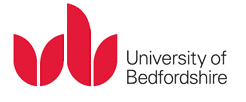Studying our Information Technology BSc (Hons) course will equip you with the knowledge and skills around core IT concepts, programming, cybersecurity and networking. In core areas of study, you will be introduced to the Fundamentals of Computer Science and the ability to apply them to practice usin

Studying our Information Technology BSc (Hons) course will equip you with the knowledge and skills around core IT concepts, programming, cybersecurity and networking. In core areas of study, you will be introduced to the Fundamentals of Computer Science and the ability to apply them to practice using state-of-the-art technologies.
Similarly, you will be introduced to the basic concepts and applications of computer systems in our Computer Systems Structure unit. As a student in the field of computer science, you will also be given an Introduction to Software Development where you will learn the fundamentals on how to develop software, model problems, test programs and distinguish between forms of programming and modelling. More importantly, you will develop your programming skills in our Principles of Programming to explore the process of analysing, designing, testing and implementing computer systems.
To diversify your skill set, our Advanced Information Technology unit will advance your skills to deal with advanced IT concepts in various organisational settings. Aside from this, you will also learn to use technologies involved in the design, development and implementation of web-based applications in our Web Technologies and Platforms unit. Building on this, you will develop the skills to model, design and evaluate good user experiences in our User Experience Design unit. In more technical areas of study, you will be given an understanding of the design and implementation demands for various databases or data centric systems in our Systems Development and Modern Database Practices unit that will enable you to use IT to develop realistic solutions to organisational problems.
Finally, you will complete an Undergraduate Project in an area of interest that is relevant to your field of study. You will decide on your proposal topic with your supervisor in our Research Methodologies and Emerging Technologies unit where you can choose from a range of ideas relevant to your career aspirations, such as creating a software artefact or a data-driven system. Similarly, our Agile Project Management unit will equip you with the project management skills for such academic work and more importantly, your future employment. To prepare you for your career, you will complete an Information Technology Employability Project by producing an individual portfolio of work with the aim of identifying your IT career goals and subsequently working to achieve them.
About the course
Why choose the School of Computer Science and Technology
How will you be assessed?
Careers
Our University is proud of our super-diverse local and global community of students and staff.
All of us who work and learn within the University are committed to ensuring that all our work begins from the advancement of equity and a principle of inclusion where we respect the rights and dignity of all people whatever their background.
Diversity is one of our key strengths and fundamental to our success. We value the diversity of all, and recognise peoples’ distinct, intersectional identities and their role in enhancing our University community.
We want to ensure that everyone thrives and are treated equally and with respect and are committed to eliminate practices that undermine or are harmful to anyone involved in the activities of our University.
We therefore have a zero tolerance of unlawful discrimination, intimidation or harassment of anyone connected with the University, specifically related to their race, religion or belief, age, gender reassignment, disability, marital or partnership status or maternity and pregnancy and are committed to take appropriate action to address it. In addition we strive to advance equality of opportunity and foster good relations between all people at the University.
We are committed to a developing a culture of learning and will create an environment where people can address and debate differences and constantly reflect on practices to drive improvement.
We recognise that conversations and debate on areas of equality, diversity and inclusion are often challenging and that people will make mistakes. We will openly acknowledge our mistakes and take accountability to improve practices and ensure mistakes are not repeated.
Through our policies, practices and behaviours we will build a culture of equality, openness, inclusion, fairness and transparency. We will do this by avoiding assumptions and check in with peoples lived experience to ensure equity of opportunity.
© 2025 coursetakers.com All Rights Reserved. Terms and Conditions of use | Privacy Policy